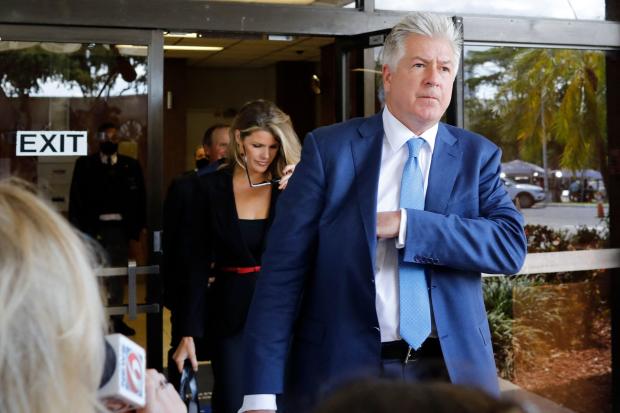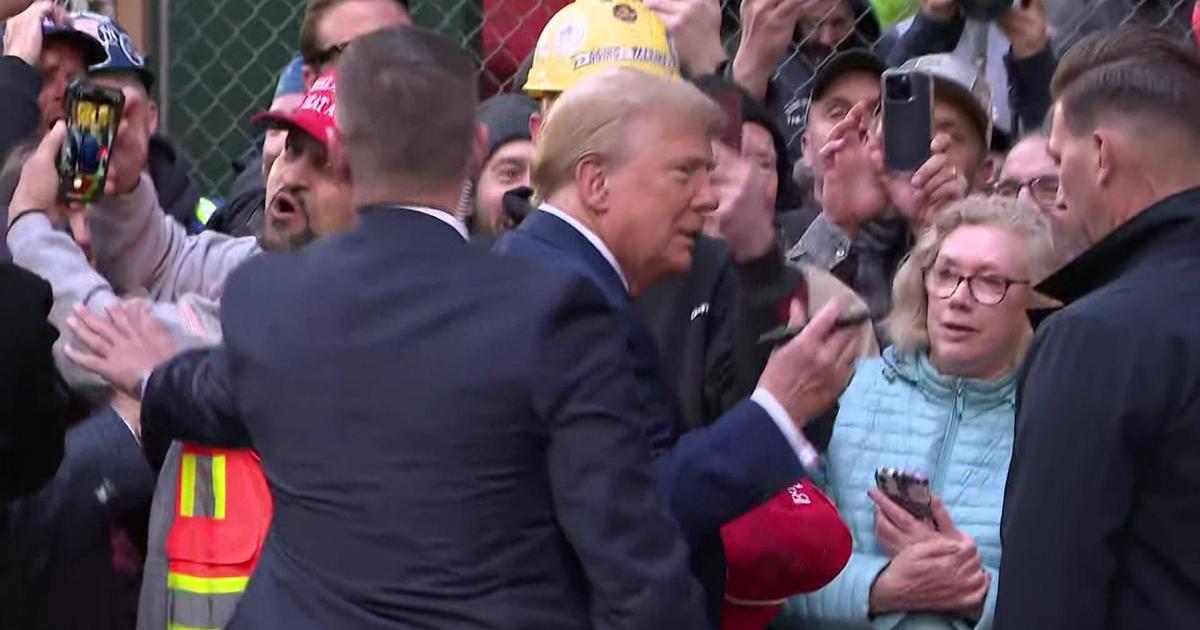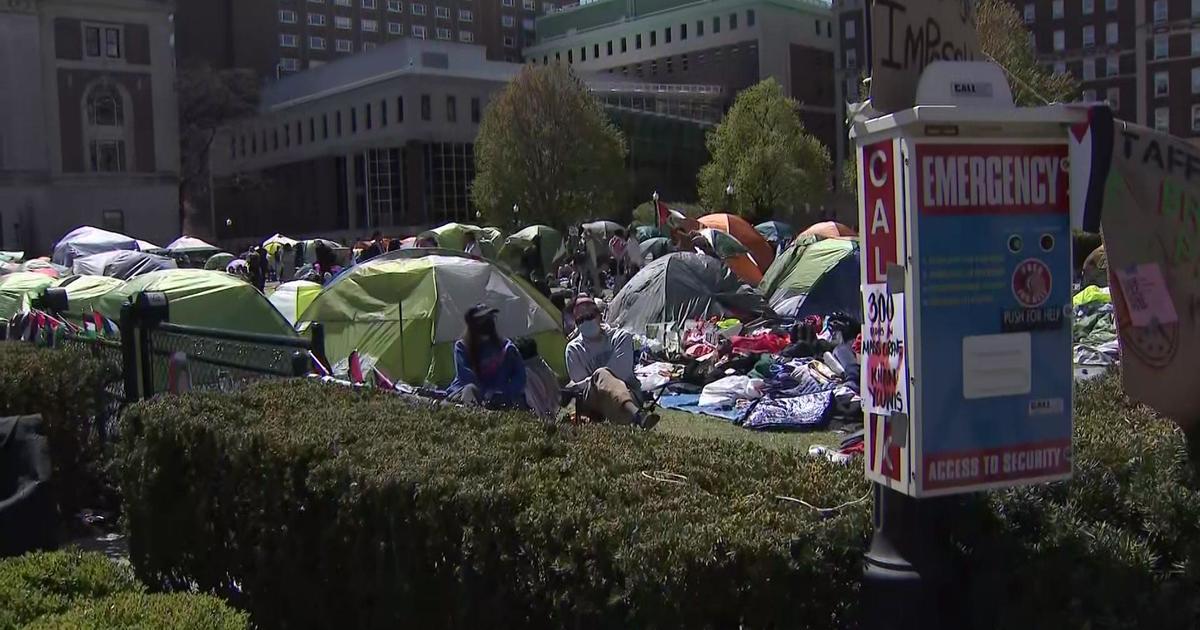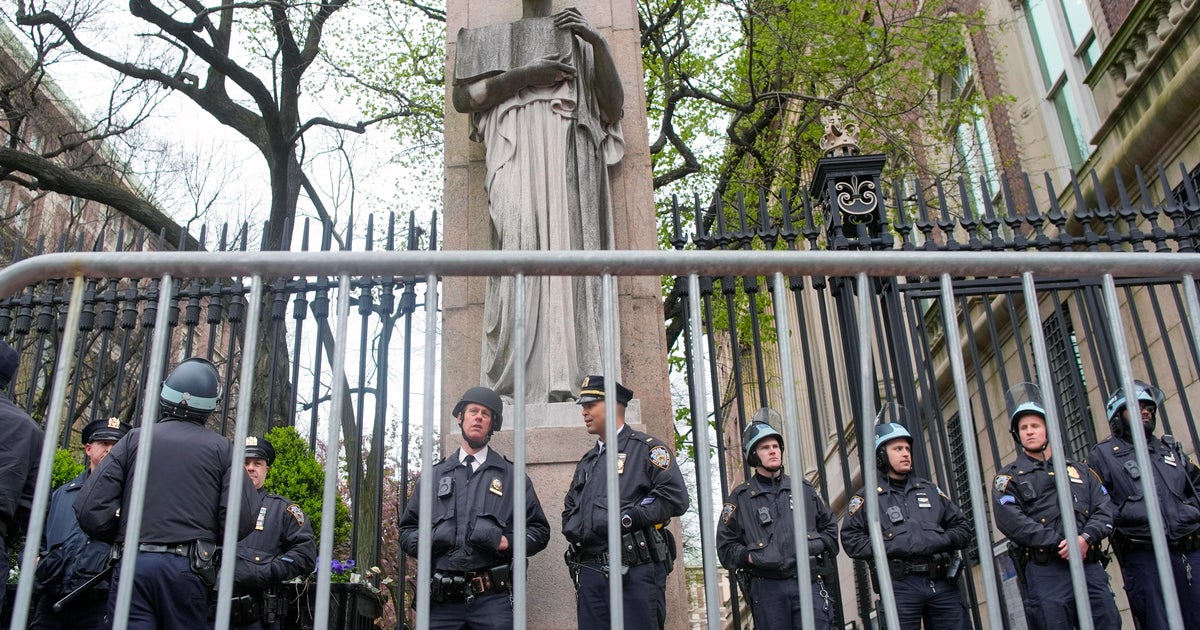Judge orders release of detailed list of property seized in Trump FBI search
Update: The property list was released on Friday. Read the latest here. Our earlier story is below.
West Palm Beach, Florida — A federal judge on Thursday ordered the release of a detailed list of the property seized during the FBI's search at former President Donald Trump's South Florida residence last month, while reserving judgment on whether to appoint an outside party to review the documents.
Federal prosecutors initially submitted a property receipt to the U.S. District Court for the Southern District of Florida on Tuesday, though it was filed under seal. The Justice Department told the court in a separate filing it was prepared to release the receipt to the public given the "extraordinary circumstances" of the case and provide it "immediately" to Trump.
Trump's legal team said they did not oppose unsealing the detailed inventory. It remained sealed as of Thursday afternoon.
Last month, the Justice Department agreed to release a more generalized version of the list, along with the warrant used to justify the search. That inventory revealed that the FBI seized 11 sets of documents containing material marked as classified, including four sets that contained documents marked "top secret," in the Aug. 8 search at Mar-a-Lago, Trump's estate.
U.S. District Judge Aileen Cannon, who is overseeing Trump's lawsuit stemming from the Aug. 8 search, ordered the release of the detailed inventory during a hearing on Thursday. Justice Department lawyers and members of Trump's legal team appeared for arguments over whether the judge should appoint a "special master" to review the documents seized by federal agents.
Cannon did not issue a decision on the special master from the bench but said she will issue a written order "in due course." She seemed potentially inclined to block the Justice Department from accessing the seized materials should she appoint a special master, but appeared open to allowing the Office of the Director of National Intelligence to continue its assessment of the documents for potential national security risks.
During the hearing, federal prosecutors said an FBI filter team, a group of agents responsible for sifting through and setting aside documents that may be privileged, reviewed 520 pages from 64 sets of documents. The records were taken from a storage room at Mar-a-Lago and Trump's office, known as the "45 Office" by the Justice Department, they said.
Jay Bratt, the top counterintelligence official at the Justice Department, and Juan Antonio Gonzalez, the U.S. Attorney in Miami, told Cannon that the "vast majority" of records taken during the search are likely not privileged, but investigators acted out of an "abundance of caution" in separating those that may be.
Bratt also revealed that on the morning after the search, Trump's team asked the Justice Department for the appointment of a special master, which prosecutors declined. Trump's team made "no subsequent request" for a special master until filing their lawsuit, Bratt said, and was advised that the filter team was in place.
Jim Trusty, one of Trump's lawyers, argued that in addition to asserting attorney-client privilege over some of the records, the former president is also asserting executive privilege over others.
The Justice Department, however, pushed back on Trump's claims that the seized records may be covered by executive privilege, arguing in legal filings and before the court that the former president never asserted executive privilege over documents retrieved by the National Archives and Records Administration in mid-January, nor when it turned over sensitive documents to federal investigators in response to a grand jury subpoena in June.
Federal prosecutors have also argued an assertion of executive privilege by a former president against a sitting president who waives the privilege is untenable as the records belong to the government, not the individual.
Regarding the special master, Trusty called the government's concerns a "fake boogeyman," saying the review process "doesn't have to take weeks or months."
"What is the harm they're worried about? What could justify this objection?" Trusty asked. "They don't want a mutually respected third party to make sure they got it right."
Trump's new attorney, former Florida Solicitor General Christopher Kise, appealed to the judge, saying she was in "a unique position to restore order, confidence."
"We need, respectfully, to lower the temperature on both sides," Kise said. "We need to take a deep breath."
The former president has publicly asserted that he declassified much of the seized materials, but Bratt said that had no bearing on the violations the Justice Department is investigating.
"Classification is different from national defense information," Bratt said, referring to the records investigators collected. "We are dealing with over 300 records here."
"This was a valid warrant. This was a lawful search," he added.




